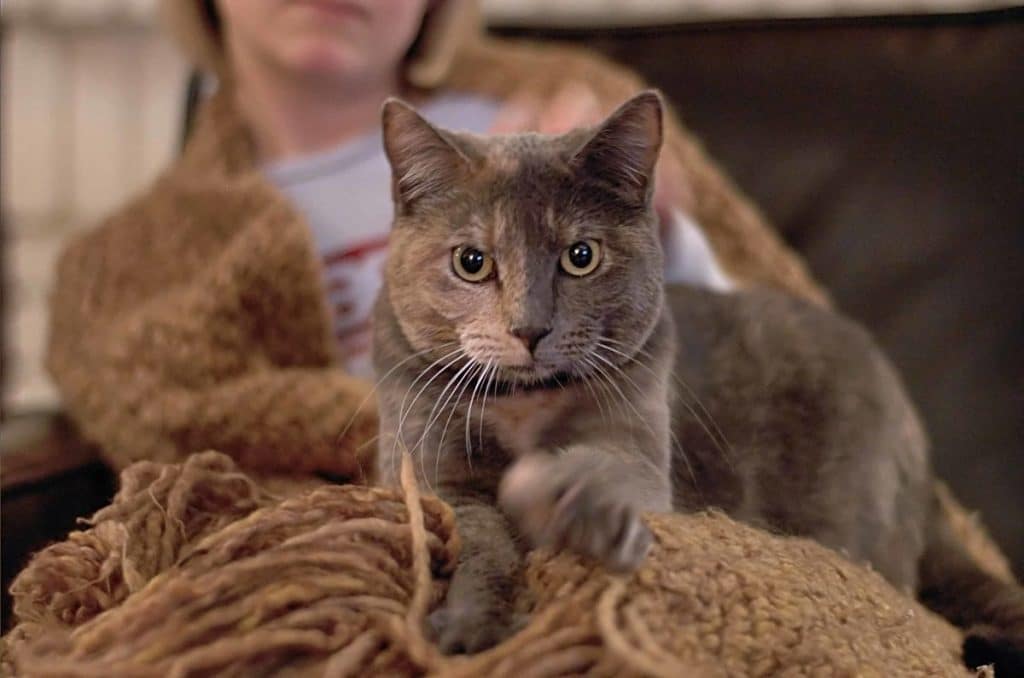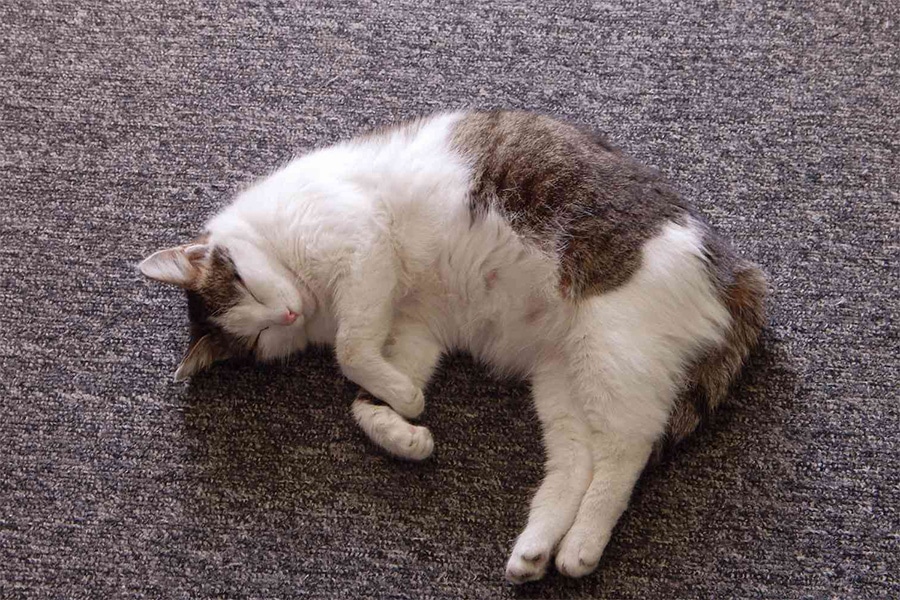People often cough for some reason. Perhaps it can be caused by a cold, allergy, or throat tickling. Human coughs can be caused by many reasons. But cats don’t cough very often. Why do cats cough? Make sure you can understand the causes of cough in cats and whether there is a problem.
The list of diseases that have cough as a clinical symptom is long. The frequency of coughing fits and the general condition of the cat play an important role in making the diagnosis.
My cat is coughing but why?
Why does cat keeps coughing? Coughing is a complex physiological reflex, a protective mechanism against inhaled, an important bronchial cleaning mechanism, an indicator of polluted air, irritation, and, finally, a cardinal symptom of lung diseases. When your cat is coughing, the cat takes a crouching position and stretches its neck far forward; with the cat’s mouth open, it usually expels the air several times in a row, eventually, the cat usually chokes or then swallows the cough. The cough can be loud or soft, wet, or dry.

If your cat coughing a lot maybe it has “Cat flu”
The pathogens of the cat flu complex – a very common, highly contagious disease – are viruses, especially herpes viruses, as well as chlamydia and mycoplasma, which can cause the nostrils to become clogged with purulent secretions, which causes shortness of breath; the cats have to breathe through their mouths. The same pathogens can also infect the larynx and windpipe, which can cause a dry cough. It is not uncommon for the disease to be chronic.
Bronchitis Inflammation of the bronchi usually occurs as a result of viral infections, for example as part of cat flu. Bacteria can also be involved. Typically, the cat suffers from a dry, and later possibly productive, attack-like cough. Sick animals can show no signs of fever if they are in good general health. However, if the infection develops into bronchopneumonia/pneumonia, severe general disorders such as apathy, fever, loss of appetite and shortness of breath develop. If pneumonia is suspected, the affected animal must take an antibiotic. Expectorant and bronchodilator substances are also important. In general, it is also important for cough patients to maintain a safe supply of fluids and food.

Cat coughing causes
Parasites
In the case of chronic coughing in cats with otherwise good general health, an infection with lungworms should also be considered. Cats can become infected with lungworms if they eat snails, in which the larvae of these worms develop.
Foreign bodies, such as parts of plants, can get trapped in your cat’s airways. From your cat’s larynx to her bronchi, she will have a sudden, strong, insatiable cough and often shortness of breath. Your cat will usually recover after the foreign body has been completely removed from her throat.
Feline Asthma
Asthma is always associated with a high degree of inflammation of the bronchi. The clinical symptoms can be mild and chronic or severe and acute. The cats show acute attacks of shortness of breath. Dyspnea is characterized by wheezing/whistling, increased abdominal breathing, cyanosis, and coughing. Cats often develop a chronic cough that ends in gagging, often making it appear like vomiting to owners. The diagnosis is based on the acute onset of dyspnea, which quickly improves with oxygen, bronchodilators, or corticosteroids. Corticosteroids are the first line of treatment for the treatment of feline asthma and are given either orally daily or intramuscularly every two to eight weeks.

Hypertrophic cardiomyopathy
The most common heart disease in cats is hypertrophic cardiomyopathy, a disease of the heart muscle of unknown origin that can occur in young adult cats. The disease can have various consequences. Most often, pulmonary edema occurs due to failure of the left half of the heart, resulting in cough, acute shortness of breath, and weakness; sometimes a moist, rattling cough with bloody, frothy sputum is also observed. However, thromboembolism can also develop, which then leads to paralysis of the hind legs. The disease cannot be cured; However, with lifelong supportive therapy, many cats can lead a fairly normal, largely symptom-free life.
Tumors
Depending on their location, cat tumors of the airways can also lead to shortness of breath and/or coughing. In cats, tumors in the lungs usually develop as metastases from other tumors. Usually, your cat coughs a lot at first and then becomes short of breath. Lymphomas or tumors of the thymus gland (thymoma) are more common than lung cancer. These tumors cause organ enlargement to compress the lungs and windpipe and thus to severe dyspnea. The diagnosis is made by X-rays and a biopsy of the tumors, and a leukosis test is important for the prognosis.
Conclusion
Your cat’s cough is an important defense mechanism for her body against external influences. Unlike dogs, cats with heart failure rarely cough. Chronic cat coughs with abnormal expectoration, or coughs with a disturbed general condition always require a quick and careful veterinary investigation. Treatment depends on the cause of the disease.
Our previous article Cat Years To Human Years - How old is your cat ? Our article titled Cat Years To Human Years about information is given.






